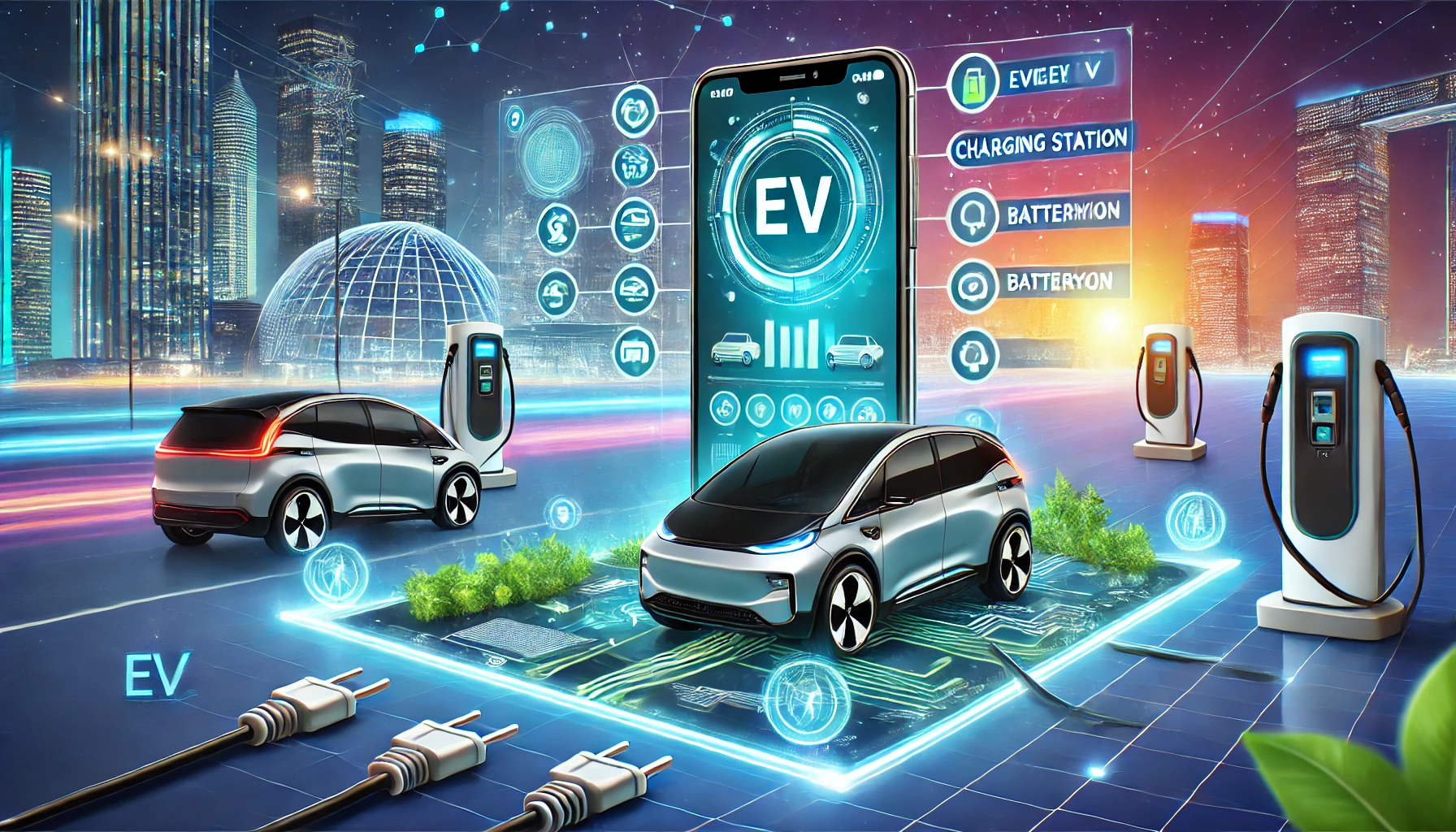Electric vehicle (EV) apps play a critical role in the EV ecosystem by offering navigation assistance, battery management, charging station locators, and more. With the growing demand for EVs, ensuring seamless app performance has become a top priority.
Predictive AI, a branch of artificial intelligence that uses data patterns to forecast future outcomes, can significantly enhance the efficiency and performance of EV applications. This article explores how predictive AI can transform EV app development and improve user experience.
Understanding Predictive AI in EV Apps
Predictive AI involves using machine learning models to analyze historical data and predict future events. In the context of EV apps, predictive AI can analyze driving patterns, battery usage, traffic conditions, and charging station availability to provide real-time recommendations and optimize app functionality. Additionally, platforms like the Candy AI Clone Platform can incorporate predictive AI to enhance user engagement through personalized experiences and data-driven insights.
Key Areas Where Predictive AI Enhances EV App Performance
- Route Optimization and Navigation
- Predictive AI can analyze real-time traffic data, historical driving records, and weather forecasts to suggest the most efficient routes.
- It can help avoid congested areas, reducing travel time and energy consumption.
- Battery Management
- Predictive models can estimate battery usage based on driving behavior and environmental conditions.
- Apps can notify drivers of expected battery depletion times and suggest optimal charging intervals.
- Charging Station Availability
- AI-powered EV apps can predict the availability of charging stations using historical usage patterns and current demand.
- This helps drivers avoid long waiting times at busy charging hubs.
- Predictive Maintenance Alerts
- Predictive AI can monitor vehicle components and detect signs of potential failures.
- Early alerts allow drivers to schedule maintenance before issues escalate, reducing downtime.
- Energy Consumption Forecasting
- The AI can analyze driving routes, speeds, and vehicle loads to forecast energy consumption accurately.
- This feature helps drivers plan longer trips with confidence.
- User Behavior Insights
- By tracking user interactions, predictive AI can offer personalized recommendations, enhancing user engagement.
- It can suggest preferred routes, charging stations, or even service centers based on past behavior.
Benefits of Predictive AI in EV App Development
- Enhanced User Experience
- Accurate forecasts ensure users receive timely assistance and relevant suggestions.
- Reduced waiting times and improved navigation contribute to a smoother driving experience.
- Operational Efficiency
- EV app developers can streamline operations by automating processes like data analysis and feature customization.
- Predictive AI helps allocate resources efficiently, minimizing service disruptions.
- Cost Savings for Users and Developers
- Users save money through efficient energy management and reduced maintenance costs.
- Developers reduce operational costs by automating routine tasks and lowering customer support expenses.
- Scalability and Growth
- Predictive AI enables EV apps to scale by adapting to increasing user demands and expanding service areas.
- It supports data-driven decision-making for future development.
Challenges of Integrating Predictive AI in EV Apps
- Data Privacy and Security
- Collecting and analyzing user data raise privacy concerns.
- Developers must comply with data protection regulations and implement strong cybersecurity measures.
- Data Accuracy and Availability
- Incomplete or inaccurate data can lead to flawed predictions.
- Ensuring high-quality, real-time data is essential for accurate forecasting.
- Integration Complexity
- Incorporating predictive AI into existing EV app infrastructures can be technically challenging.
- Collaboration between AI specialists and app developers is crucial.
- Maintenance and Updates
- AI models require regular updates and retraining to maintain accuracy.
- Ongoing maintenance involves significant time and resource investments.
- User Trust and Adoption
- Building trust in AI-driven features requires transparency and user-friendly interfaces.
- Clear communication about how predictions are generated can encourage wider adoption.
Real-World Examples of Predictive AI in EV Apps
- Tesla’s Smart Navigation System
- Tesla uses predictive AI for route planning, factoring in real-time traffic, charging station availability, and energy consumption.
- EV Charging Networks
- Companies like ChargePoint use predictive models to estimate charging station demand and manage energy distribution efficiently.
- Automotive Maintenance Platforms
- Several car manufacturers offer apps that provide predictive maintenance alerts, ensuring timely servicing.
Future Trends in Predictive AI for EV Apps
- Integration with Smart Grids
- Predictive AI could synchronize EV charging with smart grids, optimizing energy use and lowering charging costs.
- Autonomous Vehicle Support
- AI-powered EV apps, developed by leading EV app development firms, could support autonomous driving features by predicting traffic patterns and navigating complex environments.
- Eco-Friendly Route Recommendations
- Future apps may provide eco-friendly route suggestions based on emission reduction goals.
- Advanced Personalization
- Enhanced user profiling could allow even more tailored recommendations and personalized services.
- Seamless IoT Connectivity
- Integration with IoT devices could enable seamless communication between vehicles, charging stations, and home energy systems.
Conclusion
Predictive AI is reshaping the landscape of electric vehicle app development by enabling smarter navigation, efficient energy management, and personalized user experiences. While challenges like data privacy and integration complexity remain, the potential for innovation and improved service delivery is immense.
As the EV market continues to expand, predictive AI will play an increasingly vital role in optimizing app performance and driving the future of sustainable mobility.
